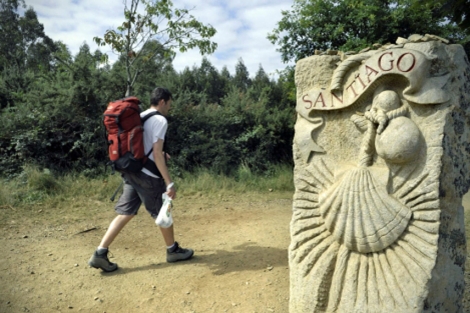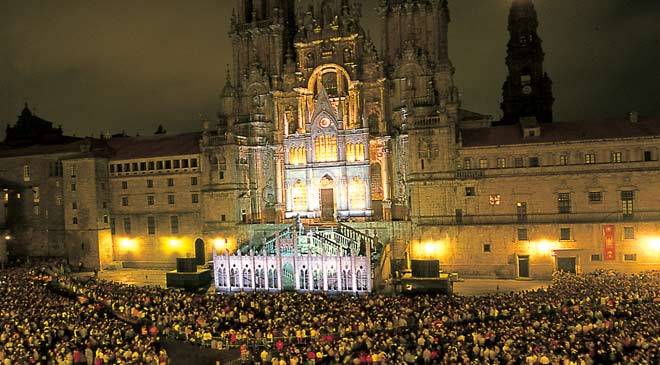Desiderata, del latín--cosas deseadas-- fue un texto clave para el actor Leonord Nimoy, que usaba el poema en su album de "música del espacio" en 1968. La obra tambien fue una referencia y inspiración para generaciones de estadounidenses que seguían sus sábios consejos en los años '60 y '70 en forma de un cartel "Spock Thoughts".
Desiderata, from the latin--desired things--was a keystone text for the actor Leonard Nimoy, who published a spoken word version of the poem in his 1968 album of "Space music". The work also proved to be a great inspiration for generations of Americans in the '60s and '70's in the form of a poster called "spock thoughts".
Tengo en mi casa una copia de del poema en un marco en el cuarto de baño--en la posición ideal para contemplar. De hecho, el poema fue compuesto no por Leonard Nimoy sino por el poeta Americano Max Ehrmann en 1927. Fue publicado después de su muerte en 1948. Les presento abajo una traducción al español de la obra.
I have a framed copy of the prose poem in the bathroom--an ideal place to contemplate. The poem was actually written not by Leonard Nimoy, but rather by the American poet Max Ehrmann in 1927 and published posthumously in 1948. Below is a Spanish translation of the work.
Desiderata
Camina
plácido entre el alboroto y la urgencia, y piensa en la paz que se encuentra en
el silencio. fEn cuanto sea posible y sin
rendirte, mantén buenas relaciones con todos. f Enuncia tu
verdad de una manera serena y clara, y escucha a los demás, incluso al torpe e
ignorante, que también tienen su leyenda personal. f Evita a las
personas ruidosas y agresivas, ya que son un fastidio para el espíritu. Si te
comparas con los demás, te volverás vanidoso o amargado pues siempre habrá
personas mas y menos avanzadas que tú. f Disfruta de tus éxitos, lo mismo que
disfrutas de tus planes. f Mantén el interés en tu propia
profesión, por humilde que sea—tu carrera es un verdadero tesoro en el imprevisto
cambio de los tiempos. f Sé prudente en tus negocios, pues el
mundo está lleno de engaños. Sin embargo, no dejes que esto te vuelva ciego
para las virtudes que existen. f Hay muchos que se esfuerzan por lograr
nobles ideales, y la vida está llena de valentía. f Sé sincero
contigo mismo, en especial no finjas el afecto, y no seas cínico en el amor,
pues en medio de todas las sequedades y desengaños, el amor es tan perenne como
la hierba. f Acepta dócilmente las lecciones de
los años, abandonando con buen humor las cosas de la juventud. f Cultiva la
constancia del espíritu para que te proteja de las desgracias imprevistas,
muchos sustos que nacen de la fatiga y la soledad. f Goce de una
sana disciplina, pero sé compasivo contigo mismo. f Tú eres una
criatura del universo, no menos que los árboles y las estrellas. f Como ellos, tienes
derecho a existir. f Sea que te resulte claro o no, indiscutiblemente
el universo marcha como debiera. f Por eso te corresponde estar en paz
con Dios, cualquiera que sea tu idea de Él, f Sea lo que sean tus trabajos y aspiraciones,
conserva la paz con tu alma en la revoltosa confusión de la vida. f Aún con todas sus farsas,
penalidades y sueños fallidos, el mundo sigue siendo hermoso. f Cuídate, y atrévete
a ser feliz. f f
Inglés Original: Max Ehrmann, 1948- Traducción: Elijah Anderson Barrera 2013
Go placidly amid the noise and haste, and remember what peace there may be in silence. As far as possible without surrender be on good terms with all persons. Speak your truth quietly and clearly; and listen to others, even the dull and the ignorant; they too have their story. Avoid loud and aggressive persons, they are vexations to the spirit. If you compare yourself with others, you may become vain and bitter; for always there will be greater and lesser persons than yourself. Enjoy your achievements as well as your plans. Keep interested in your own career, however humble; it is a real possession in the changing fortunes of time. Exercise caution in your business affairs; for the world is full of trickery. But let this not blind you to what virtue there is; many persons strive for high ideals; and everywhere life is full of heroism. Be yourself. Especially, do not feign affection. Neither be cynical about love; for in the face of all aridity and disenchantment it is as perennial as the grass. Take kindly the counsel of the years, gracefully surrendering the things of youth. Nurture strength of spirit to shield you in sudden misfortune. But do not distress yourself with dark imaginings. Many fears are born of fatigue and loneliness. Beyond a wholesome discipline, be gentle with yourself. You are a child of the universe, no less than the trees and the stars; you have a right to be here. And whether or not it is clear to you, no doubt the universe is unfolding as it should. Therefore be at peace with God, whatever you conceive Him to be, and whatever your labors and aspirations, in the noisy confusion of life keep peace with your soul. With all its sham, drudgery, and broken dreams, it is still a beautiful world. Be cheerful. Strive to be happy.
“
”
Max Ehrmann, "Desiderata"











